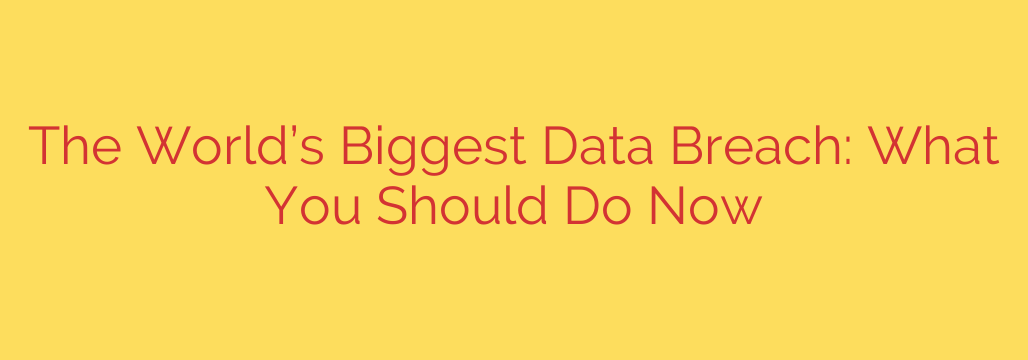
A massive data breach of unprecedented scale has come to light, potentially exposing the personal information of billions. This event highlights the critical vulnerability of our digital lives and underscores the urgent need for proactive security measures. It’s not just about a single compromised account; the sheer volume of exposed data creates fertile ground for identity theft, fraud, and sophisticated phishing attacks targeting individuals worldwide. Understanding the potential impact is the first step; taking immediate, decisive action is the next.
Your first and most critical step is to assume your data may be compromised and take action now, rather than waiting to confirm if you were directly affected by this specific incident. Focus immediately on your online security. Review all your major online accounts – email, banking, social media, shopping sites. The most crucial action is to change your passwords on these vital platforms. Do not reuse passwords across different sites; each account should have a unique, strong password. Consider using a reputable password manager to generate and store complex passwords securely.
Beyond changing passwords, enable two-factor authentication (2FA) or multi-factor authentication (MFA) on every service that offers it. This adds an essential layer of security, requiring a second verification step (like a code sent to your phone) even if your password is stolen. It’s a simple yet incredibly effective barrier against unauthorized access. Be highly vigilant about phishing attempts. Cybercriminals will inevitably exploit the news of this breach, sending fake emails or messages pretending to be from companies or services you use, attempting to trick you into revealing more information or clicking malicious links. Always verify the sender and never click on suspicious links or attachments.
Furthermore, it is highly recommended to monitor your financial accounts and consider implementing credit monitoring or placing a credit freeze with major credit bureaus. This can help detect and prevent new accounts from being opened in your name using your stolen information. Regularly review bank statements and credit reports for any suspicious activity. Remaining proactive and maintaining robust digital hygiene are your best defenses against the ongoing threat landscape exacerbated by breaches of this magnitude. This isn’t just about reacting to one event, but building sustainable security habits for your digital future.
Source: https://www.kaspersky.com/blog/16-billion-passwords-leak-2/53670/








